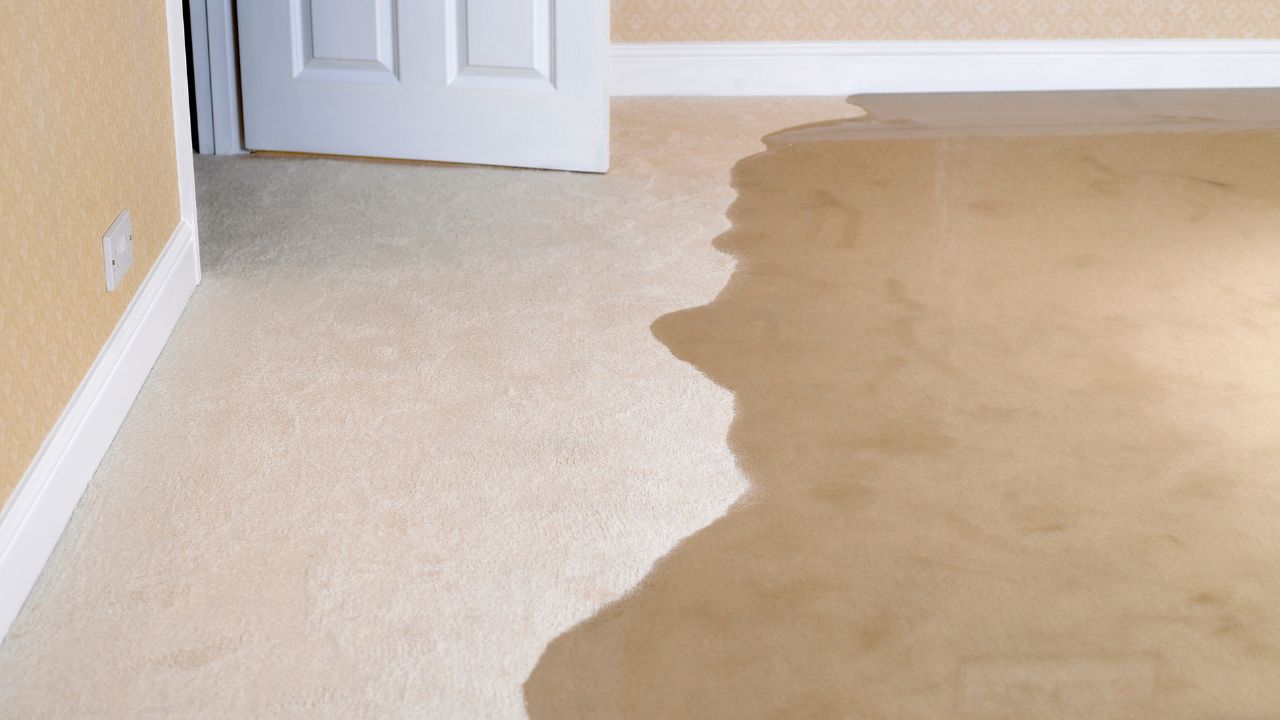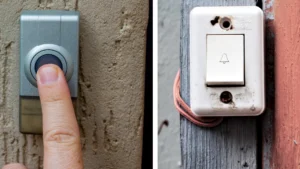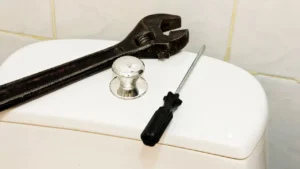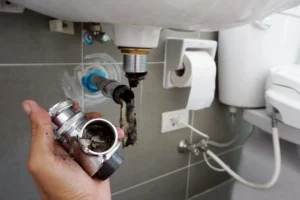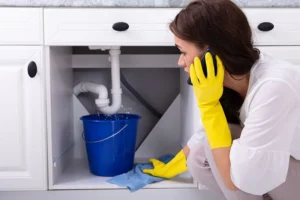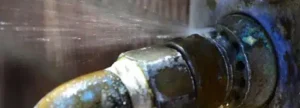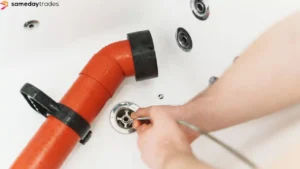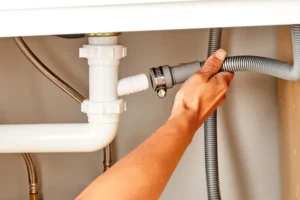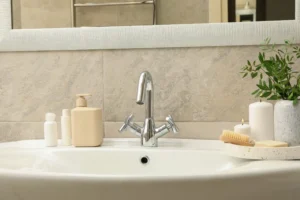If you’ve ever stepped in a mysterious puddle near your washing machine or spotted water pooling under the fridge, you’re not alone. Leaks from everyday household appliances are one of the most common—and sneakiest—ways indoor flooding starts.
One minute you’re doing laundry, the next you’re mopping up a mess you didn’t see coming. The frustrating part? Most appliance-related floods are completely preventable with just a little attention.
In this article, we’ll walk you through how appliance leaks happen, what damage they can cause, and how to stop them before they become a soggy nightmare. And if your leak has already gone from drip to disaster, our House Flooding Plumbing Services are always ready to help.
Common Household Appliances That Leak
It’s easy to forget that many appliances in your home are connected to water lines or drains. When something goes wrong, even a slow leak can cause major problems if left alone.
Washing Machines
These are notorious for flooding laundry rooms. Leaks often come from worn-out hoses, loose connections, or internal valve failures. And when the spin cycle shakes things loose? You’ve got trouble.
Dishwashers
If your dishwasher is leaking, it could be the door seal, clogged filters, or even a misaligned rack. The leak might be small, but it adds up fast—especially if it runs underneath the cabinets where you won’t notice right away.
Fridges with Ice Makers
Refrigerators with water dispensers or ice makers have a small hose running to the back. That hose can crack, loosen, or leak over time—often without any visible signs until your floor starts to swell.
Hot Water Systems
An old or corroded hot water tank can leak slowly or suddenly burst, depending on its condition. If it’s located indoors or in a tight space, that’s a flood waiting to happen.
How Appliance Leaks Cause Indoor Flooding
Appliance leaks often start quietly. A drip here, a damp corner there. But when left unchecked, they can turn into full-blown floods.
Water seeps into flooring, subfloors, and walls. Over time, that moisture weakens timber, ruins carpet, and damages electrical systems. The worst part? The water might have been leaking for days or even weeks before you notice anything.
Some leaks are sudden. A hose can snap off the back of a washing machine during a cycle and pour out liters of water in minutes. Others, like a slow drip from a dishwasher, work behind the scenes until the damage is well underway.
If your appliance is on the second floor (like some laundry setups), that water doesn’t just stay put—it travels downward. One leak can damage multiple rooms, ceilings, and light fixtures.
Warning Signs That a Leak is Brewing
Keep your eyes—and nose—open for these early red flags:
- Musty smells near appliances or inside cabinets
- Water stains on nearby walls or floors
- Warped flooring that feels soft or spongy
- Condensation or unexplained dampness behind appliances
- Higher water bills with no obvious cause
If you spot any of these, investigate. Don’t wait for a splashy surprise.
What Happens When You Ignore a Leak?
It’s easy to think a slow drip is no big deal. But here’s what can happen when leaks are ignored:
- Mold growth within walls and cabinets
- Rotting wood under floors and behind skirting boards
- Short circuits or fire hazards from water near electrical wiring
- Stained ceilings or bubbling paint in lower floors
- Higher repair costs than if it had been handled early
You may also find yourself dealing with insurance frustrations—especially if the damage is considered “preventable.”
In short, small leaks don’t stay small. They get expensive.
How to Prevent Appliance Leaks
Now that we’ve scared you a little (sorry), let’s focus on what you can do to stop these leaks before they start.
1. Do Regular Visual Inspections
Every few months, pull out appliances and check behind them. Look for loose hoses, water spots, or rust on connectors. If you notice anything damp or suspicious, get it checked.
2. Upgrade Old Hoses
Many appliances come with rubber hoses, which can degrade over time. Switch to stainless steel braided hoses. They’re tougher, last longer, and are less likely to rupture.
3. Don’t Overload Washing Machines
We get it—you want to do fewer loads. But overloading puts strain on internal parts and connections. Stick to the manufacturer’s recommendations to avoid damage.
4. Install Simple Leak Detectors
You can buy inexpensive water sensors that sit behind appliances. If water touches them, they sound an alarm. Some can even alert your phone.
5. Schedule Routine Plumbing Checkups
A professional plumber can check behind appliances, inspect water pressure, and test for hidden leaks. It’s a simple way to catch issues before they turn into emergencies.
Need help with this? Our team at Same Day Trades offers routine plumbing inspections and leak detection services.
What to Do If a Leak Turns Into a Flood
It happens. If your appliance has already made a mess, act quickly:
- Turn off the water supply to the appliance.
- Switch off electricity to affected areas if safe.
- Soak up standing water with towels or buckets.
- Call Same Day Trades for emergency plumbing help.
- Take photos for insurance documentation.
The longer water sits, the more damage it causes. We’re available 24/7 to respond to flood-related plumbing emergencies.
Final Tips
A small leak may not seem like a big deal—but it can easily turn into one. Most appliance-related floods can be avoided with a bit of maintenance, some smart upgrades, and keeping an eye out for early signs.
You don’t have to panic over every drip. But you do need to pay attention.
And when something does go wrong, don’t wait it out—call in a licensed plumber who can handle the job properly.
Frequently Asked Questions
What causes a washing machine to leak suddenly?
Loose hoses, cracked seals, or overloading the machine can lead to sudden leaks.
How often should I replace appliance hoses?
Every 5–7 years is a good rule of thumb, or sooner if you see wear and tear.
Are appliance leaks covered by insurance?
If the damage is sudden and not due to neglect, many policies will cover it. Always check your specific policy.
Can a leaking fridge flood the house?
Yes. A slow leak behind the fridge can damage flooring and walls over time.
Should I turn off water to appliances when away?
If you’ll be gone for more than a few days, it’s smart to shut off water to appliances like washing machines and dishwashers.
Do plumbers fix appliance water lines?
Yes. We repair or replace hoses, valves, and water connections to appliances.
How do I know if a slow leak is getting worse?
Check for spreading stains, musty smells, or increased dampness over time.
Can leaking appliances cause mold?
Absolutely. Moisture behind appliances creates the perfect conditions for mold growth.
Is a leak detector worth it?
Yes. They’re cheap, easy to install, and give early warnings before things get out of hand.
What should I do if water is leaking under my dishwasher?
Turn off the water, unplug the appliance (if safe), and call a plumber to inspect and repair the issue.

